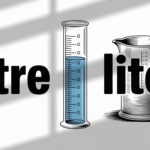Litre vs. Liter: Understanding the Spelling Differences and Choosing the Right One
The debate over litre vs liter spelling differences might seem like a minor detail, but it’s a detail that matters more than you might think. Whether you’re writing an academic paper, publishing an international product description, or simply preparing a recipe, knowing whether to use litre vs liter can impact readability, clarity, and even professionalism. […]
Read More »









